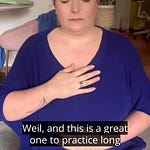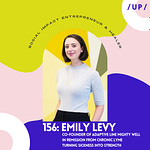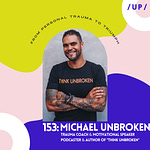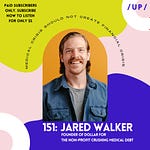Dr. Rashmi Mullur is an integrative endocrinologist leading practices at UCLA and the VA in Los Angeles. She received her medical degree from University of Texas Southwestern Medical Center, and completed her internal medicine and chief residency at Barnes-Jewish Hospital/Washington University School of Medicine, St. Louis. After this, she completed a fellowship in Endocrinology at the VA-Cedars Sinai Medical Center. A certified yoga instructor registered with the International Alliance for Yoga Therapists (IAYT), she is also a board-certified integrative medicine practitioner (American Board of Integrative Medicine), in addition to completing a research and medicine education fellowship. Dr. Mullur is also part of the David Geffen School of Medicine at UCLA curricular faculty, and chairs a course in endocrinology for first-year medical students, as well as leading the UCLA Health Integrative Medicine Collaborative as its education director. Her goal is to educate up-and-coming doctors in integrative medicine as they enter their training, with a focus on experiential learning. She has pioneered several clinical programs using integrative medicine techniques for the management of chronic disease, and she is recognized as a national leader on the use of integrative medicine for patients with diabetes. Given her background, the focus of her practice is in fully integrating Eastern and Western approaches to clinical care, using teachings from yoga, TCM, Ayurveda, and other modalities to truly connect mind and body in the treatment of endocrine disorders such as diabetes, thyroid disorders, stress management, and fatigue – often referring to acupuncturists, movement specialists, and other practitioners to complement her work. As a patient, Lauren can attest to the effectiveness of Dr. Mullur’s approach. One stunning fact: she takes a longitudinal history of each new patient, and has tailored her schedule to spend as much time with them as they need for appropriate treatment. So, basically: the needle in the proverbial healthcare haystack, and Lauren’s medical hero.
Listen in as Dr. Mullur shares…
- that she most often deals with patients who live with chronic stress and fatigue
- that she is a special needs parent, and that juggling work, life, and care-giving can be exhausting – so she has to find the space personally to deal with those challenges
- that her own experiences have given her a better understanding of what her patients are feeling, which has strengthened her empathy
- that while many of her patients live with disorders that aren’t validated by lab testing, that doesn’t mean they don’t require care
- an overview of the endocrine system, which is the focus of her work
- that she takes a longitudinal bio-psychosocial history of all her patients – and why that’s important
- her role: to bring her patients back to their own wellness
- that she started utilizing integrative medicine in her practice in 2011
- why “adrenal fatigue” isn’t an accurate diagnosis
- what makes a good doctor: curiosity
- an issue with the US healthcare system: that doctors are strapped for time with their patients
- that the VA in Los Angeles has been responsive to alternative and complementary approaches to medicine (such as yoga, Tai Chi, and acupuncture)
- how the VA has been advanced in its approach to helping veterans wean themselves from opioids, where addiction has become an issue
- how the VA has also led the charge with regard to telemedicine, and why she’s excited to be a part of its growing program
- the challenge of encouraging patients to find balance
- why she turns to her yoga training in her integrative approach to care
- that some patients have been ill for so long, they can’t hear what their bodies are trying to tell them
- that so much of suffering (from misunderstanding) – for both patients AND physicians – is based in ego
- that as a practitioner, she sees herself and patients in partnership over their care
- what’s shifting in medicine: doctors’ comfort with saying “I don’t know”
- that a lot of physicians deal with the same symptoms as patients: stress and fatigue associated with “burnout”
- the advantages and disadvantages of group intervention in medicine
- where physicians can improve in their approach to treating pain – in referring to PT, acupuncture, etc.
- the problem with hormone testing: that hormones are only a snapshot in time, and are constantly shifting – which makes the nuances harder to track
- that treating fatigue with hormones can often be like using a sledgehammer to knock on a door – it is often far too aggressive
- that Deepak Chopra is also AN ENDOCRINOLOGIST!!!! (This fact blew Lauren’s mind!)
- that we need to start speaking the language of energy medicine in traditional Western approaches to care – and that she thinks this will be the next advancement in medicine
- that she’s working on a book right now – all about coping with stress and fatigue (check here for updates!)
- the importance of patient empowerment – which goes beyond the concept of “patient-centric” care
- her role as an advocate in her children’s care – especially in the care of her special-needs son
- the power of social media to connect patients and caregivers
- how elimination diets should work: for a short period of time, with professional supervision, and with the plan to reintroduce “no” foods in the future
- that she sees a lot of orthorexia in her practice – especially among younger female patients with diabetes, who are also often at risk of micronutrient deficiencies
- why it’s important for patients to document their symptoms for their doctors














Share this post